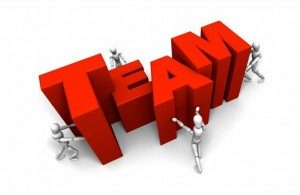 When making a big decision, you’ve likely employed one of the most-often-used strategies around: the pros and cons list. But your list may not be as reliable as you think. Positive focus often gets the raw end of the deal because of how human brains are structured.
When making a big decision, you’ve likely employed one of the most-often-used strategies around: the pros and cons list. But your list may not be as reliable as you think. Positive focus often gets the raw end of the deal because of how human brains are structured.
According to a recent study from the Stanford Graduate School of Business, people are not great at weighing the pros and cons because negatives affect us more. We also remember failures more easily than positive experiences. This is because failures often hurt.
One of the main reasons that humans unconsciously focus on negatives is because our brains make shortcuts through biases to help us make decisions quickly. This was often a life and death result that was extremely advantageous during hunting and gathering times. That model still exists in our brains today and can make it difficult for us to rationally weigh pros and cons against each other. The negatives tend to carry more weight. Even if the list is disproportionately heavy on the pro side, just a few negatives can give us pause and will seem more important than the long list of positives. A shift to a positive focus with a good problem solving system, however, will build your team development strategy.
How this plays out when adding new members to an existing team is also impacted by this hardwired phenomenon. For example, just a few negative traits about an individual may keep us from adding an otherwise solid candidate to the team.
So if our brains are hardwired this way, what can we do to change?
Just knowing that the bias exists can go a long way in helping us to re-shift our focus to the positives. Highlight the pros while demoting the importance of the negatives to reduce your natural bias toward negativity. After consciously focusing on shifting your mind to the positive, invest in ongoing training opportunities to improve your team building skills.
TIGERS Manager as Facilitator Training builds positive focus
Managers who are good facilitators bring people together to work toward solutions. Even if the team is facing many different obstacles, a strong facilitator is able to see the  positives and guide their teams with the right facilitation strategies. As a result, groups accomplish more with high levels of commitment and accountability, creating fewer negatives for leaders to dwell on.
positives and guide their teams with the right facilitation strategies. As a result, groups accomplish more with high levels of commitment and accountability, creating fewer negatives for leaders to dwell on.
Facilitating group dynamics the right way creates buy-in and makes group process bearable by everyone. Ongoing training allows leaders to:
- Learn to facilitate in the correct sequence, which is different than most people think.
- Learn strategies for reducing group conflict and restoring positive behavior that work groups support.
- Learn to remove closely held positions so that good decision making is achieved with the highest levels of consensus.
TIGERS Managers as Facilitators three-part program releases tools, resources and templates that streamline how groups perform. Leaders learn how to apply expert group dynamic facilitation methods for decision-making, problem-solving and planning in the workplace. The result creates a stronger work environment and more collaborative work culture.
Manager as Facilitator Training provides:
- A successful, research-based team development and facilitation system that is sustainable and grows with departments and organizations.
- A reliable, systematic approach to team facilitation that continuously improves upon the way teams work.
- A system that provides a foundation learning structure for your other work group and team development efforts.
- Training outcomes that keep work groups engaged in goal achievement while developing leaders who effectively facilitate high commitment team decision-making and problem-solving.
- An effective way to measure the return on your investment for training and development outcomes.
- Validated and reliable diagnostics that get to the core issues facing teams and work culture so you know exactly where to focus team development and transformation efforts.
Pros and cons lists can go a long way in helping people to make important decisions. It is one of the most commonly recommended strategies for individuals, both inside and outside of the workplace. Positive focus, however, needs guided facilitation to succeed.
This is because positive focus is not the human decision-making habit. According to a recent study, pros and cons lists may not be as effective as you once thought. Our brains are trained to utilize biases based on past experiences to make shortcuts to help us make decisions more quickly. This can be handy for helping us to perform daily tasks with minimal effort and thought. When making important decisions, however, a shift to positive focus is important. Otherwise this simple decision -making strategy may make you place unnecessary emphasis on negatives, even if rationally the positives make more sense.
This means that even if the pros side of your list is considerably longer, just a few negatives can tend to carry more weight. When you are not conscious of this, you might pause making your decision more difficult. Just knowing that this is how your brain works can help you to reduce the importance of the negatives on your list. Ongoing management training that teaches managers to facilitate decision-making and problem-solving teams will reduce the impact. When managers are good team dynamic facilitators, they are better able to bring their team members together to work toward sustainable solutions. Groups are then able to accomplish more with high levels of commitment and accountability.
Check out the following resources for more information on positive focus
- Valence Asymmetries in Attitude Ambivalence
- New Stanford Study: Humans Are Terrible at Weighing Pros and Cons
- TIGERS Manager as Facilitator Training
Copyright TIGERS Success Series, Inc. by Dianne Crampton
About TIGERS Success Series Group Norm Manager as Facilitator Training
 TIGERS Success Series provides a Manager Facilitator training with a tool box that engages employees to identify the group norms that improve both department and company work culture. It helps organizations to re-engage employees, resolve conflict behavior and builds work relationships. These same resources and tool box can be used to onboard new employees and contractors onto existing teams so behavior is understood and normalized from the get-go. The training and tool box are brought to you when eight or more of your managers are enrolled.
TIGERS Success Series provides a Manager Facilitator training with a tool box that engages employees to identify the group norms that improve both department and company work culture. It helps organizations to re-engage employees, resolve conflict behavior and builds work relationships. These same resources and tool box can be used to onboard new employees and contractors onto existing teams so behavior is understood and normalized from the get-go. The training and tool box are brought to you when eight or more of your managers are enrolled.
Call 1-877-538-2822 US or 1-541-385-7465 international to inquire.